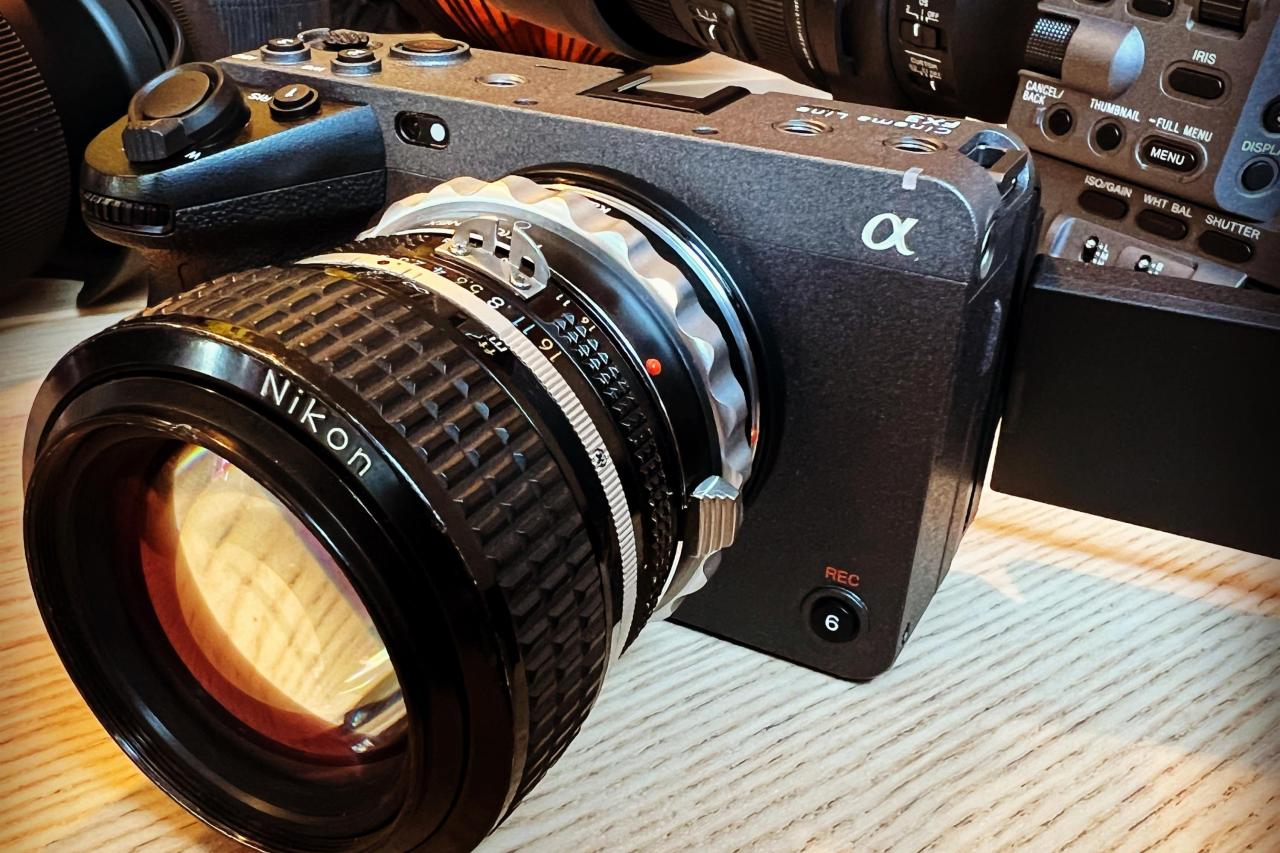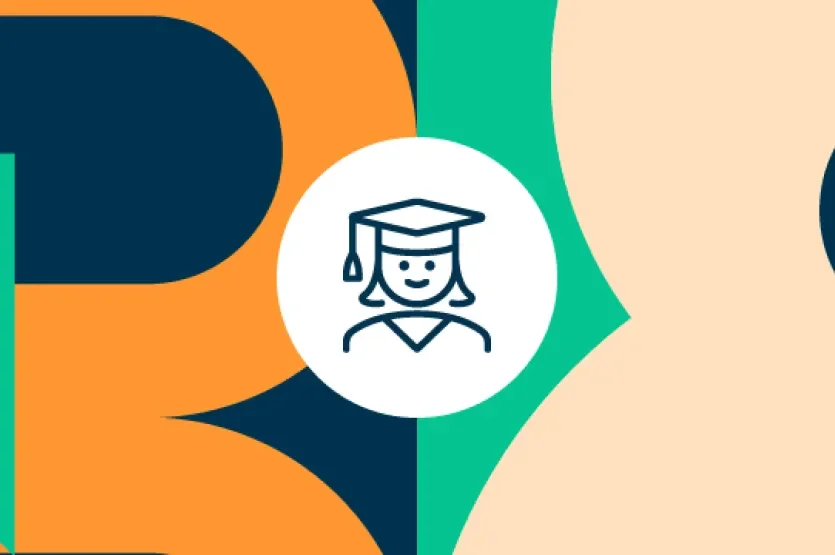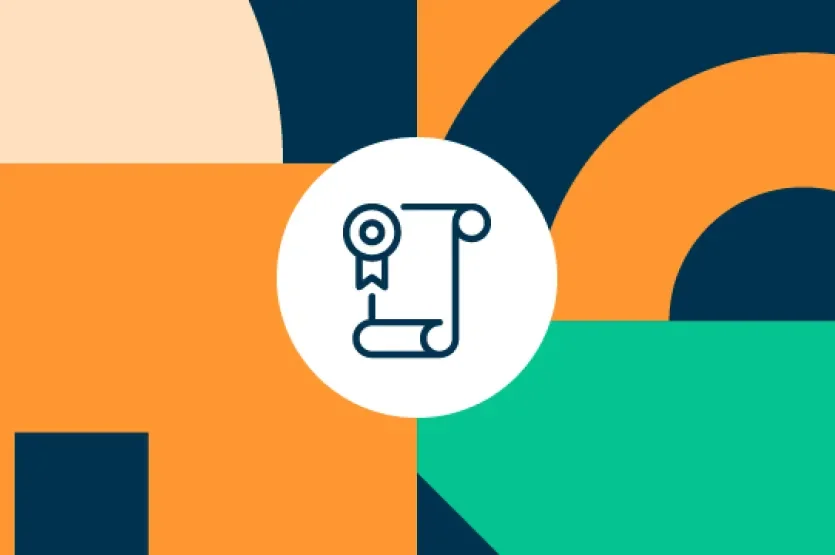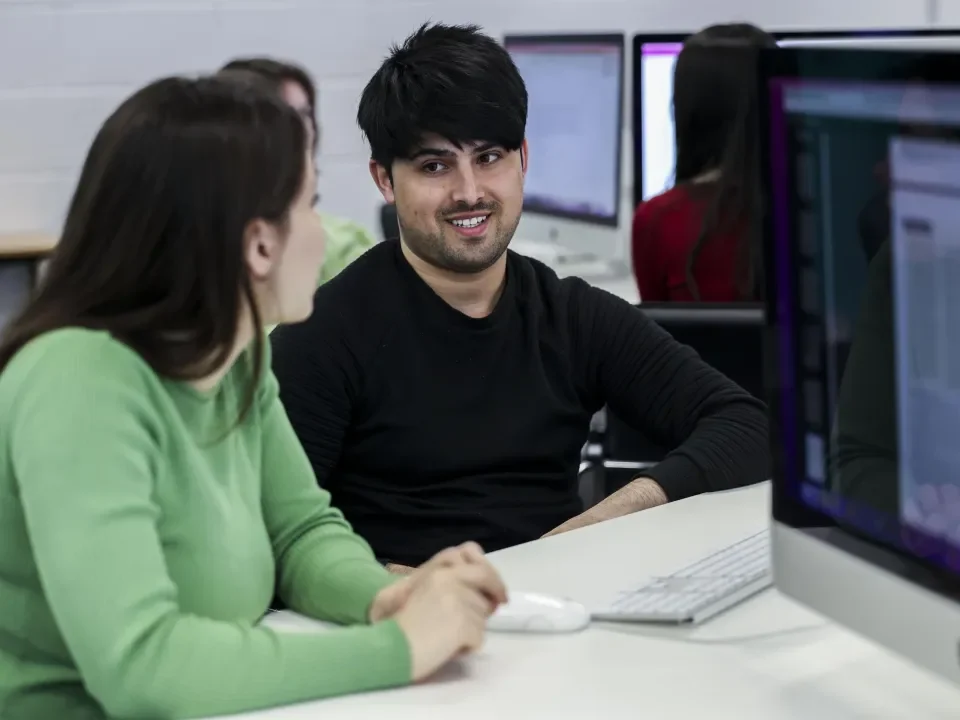Overview
The new MA in Documentary Practice draws from our 30 years of experience teaching film and television in the School of Communications. It's our response to the increasing interest from students and the growing demand in the industry for long form documentary content..
Furthermore, we provide access to cutting-edge facilities, including a recently constructed media studio equipped with industry-standard cameras, sound recording equipment, and editing tools. This ensures our students have access to the best resources for honing their skills and achieving their creative aspirations.
Why DCU
DCU People
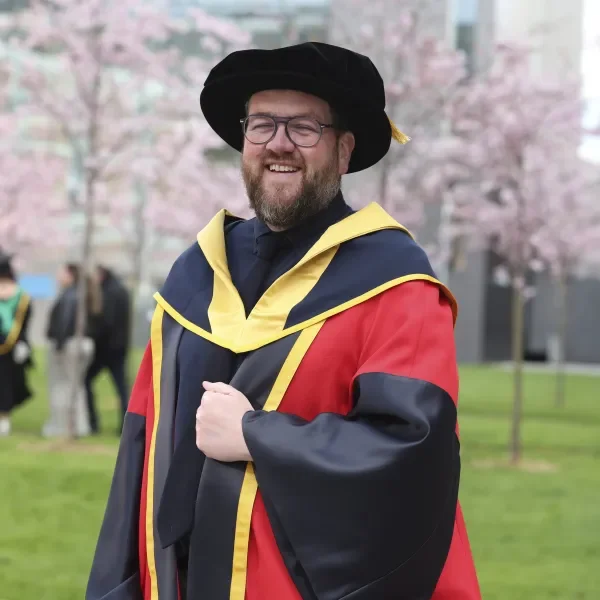
For his PhD, documentary maker Tom Burke turned the camera on his fellow filmmakers to explore the ethical dilemmas involved in the relationship between the interviewer and interviewee.
Read more about Tom Burke
Careers & Further Options
Careers
Graduates from our Masters in Documentary Practice are poised to become sought-after assets for the dynamic audio-visual industry. They not only bring valuable practical production skills but also possess a profound knack for storytelling. This unique combination equips them with the versatility to chart their own career trajectories.
Here's what sets our graduates apart:
- Practical Prowess: Armed with hands-on production skills, they are well-prepared to contribute effectively in a professional production environment.
- Storytelling Savvy: Their storytelling abilities make them adept at weaving narratives that resonate with audiences, a coveted skill in the industry.
As a result, our graduates will discover a multitude of professional pathways open to them:
- Team Players: They can seamlessly integrate into high-level production teams, enhancing the creative and technical capabilities of any project they join.
- Leadership Potential: With their comprehensive skill set, they have the potential to lead and direct production teams, guiding projects from concept to completion.
Our programme equips graduates not just to fit into the audio-visual industry but to excel and make a meaningful impact, whether as team members or as visionary leaders in their own right.
Entry Requirements
The minimum criteria for entry to this taught postgraduate programme is that applicants hold a minimum of a second class honours, grade two primary degree (Level 8) or equivalent professional qualification. In addition to the standard application form and personal statement outlining their interest in the course, applicants will be required to submit:
• a portfolio of previous work (this does not have to be to a professional standard, but should demonstrate basic familiarity with either video, photographic or aural story-telling
AND/OR
• a written proposal for a documentary project (video, photographic or audio), outlining the objectives, style and intended audience for the production.
Applicants with appropriate combinations of professional qualifications and experience may also be considered. This includes discipline-specific knowledge and know-how; transferable skills; basic research competency; personal effectiveness.
Recognition of Prior Learning (RPL) applicants are required to submit a cover letter along with their application under the Transcripts section of the portal, affirming their intent to apply for RPL. For more information on RPL see here.
In the case of international applicants, having educational qualifications of a standard equivalent to those outlined above. In addition, where such candidates are non-native speakers of the English language, they must satisfy the University of their competency in the English language, with a minimum score of IELTS 6.5 or equivalent. Transfer from related Level 9 programmes in DCU or other third-level institutions is subject to having fulfilled educational qualifications of a standard equivalent to those outlined above.
Programme Structure
The course has been uniquely equipped with brand new camera equipment, a dedicated post-production lab as well as access to the school’s professional sound and television studios. What makes this MA programme truly unique is its holistic and practice based approach to non-fiction storytelling. Students will immerse themselves in a multidisciplinary journey encompassing photography, audio production, and video production. Additionally, they will explore theory through extensive readings and the analysis of key documentary films and projects.
The culmination of this immersive experience is the capstone project, a production-based dissertation. After a meticulous development process, students will pitch their projects at an industry-standard level. Upon completion, these projects will be showcased in a public festival screening at the prestigious Irish Film Institute.
Our commitment to quality education includes maintaining low student-teacher ratios, ensuring personalised attention, and providing consistent access to cutting-edge equipment within the School. While prior production knowledge from an undergraduate degree or industry experience is ideal, our programme is designed to challenge and elevate students from the very beginning, guaranteeing that their final dissertations meet the high standards expected in the professional world.
Throughout the programme, we emphasise three distinct forms of external engagement to instil in our students the understanding that their work in this course goes far beyond their university years. These engagement forms include:
We actively promote external engagement throughout the programme, underscoring the enduring impact of our students' work beyond their university tenure. These engagements take the form of:
- Masterclass Series: Our students have the privilege of learning directly from industry experts who are at the pinnacle of their craft. This esteemed panel of professionals changes annually to reflect the latest trends and notable achievements in the field.
Masterclass Speakers 2024/25
- Luke McManus - Documentary Filmmaker
- Ross Whitaker - Documentary Filmmaker
- Anna Rogers & Zlata Filipovic - Documentary Filmmakers
- Matthew Thompson - Photographer & Filmmaker
- Dave Hughes - Colourist
- Mick Mahon - Film Editor
- Kata McCullough - Director of Photography
Industry Panelists 2024/25
- Sinéad Stimpfig - Virgin Media Television
- David O'Mahony - Irish Film Institute
- Sally Roden - RTE Television
2. Pitching Sessions: We provide a unique opportunity for students to pitch their ideas to commissioned editors in film, television, radio, and the arts. This direct interaction with decision-makers in the real world is a priceless experience, granting insights and connections that can significantly benefit their future careers.
Festival Participation: Exceptional film projects completed during the summer are showcased at the renowned Irish Film Institute as part of the IFI Documentary Festival held in September. This is a public event which showcases student work to a paying audience and provides the final public engagement of the twelve month programme.
Modules are delivered in a mixture of intensive on campus production days and online lectures. During term, it is envisaged that students will need to be physically on campus for one full day per week. Our programme stands out for its unique approach to documentary practice education. We prioritise:
- Innovative Approach: Fostering a creative and student-centred learning environment that encourages self-expression and collaboration.
- Hands-On Learning: Embracing a 'learn by doing' philosophy that cultivates excellence, innovation and professionalism among our students.
- Cutting-Edge Resources: Providing access to state-of-the-art technical resources and equipment to ensure students are equipped with the latest tools of the trade.
Experienced Faculty: Our dedicated teaching staff comprises both professional practitioners and academics, offering a wealth of real-world expertise and academic knowledge to guide our students on their educational journey.
Core Modules
Documentary Video Production
Audio & Sonic Design
Documentary on Screen
Major Documentary Production Project
Documentary Photography
Media Law & Ethics
Documentary Masterclass and Proposal Development
Fees and Funding
How To Apply
To apply for this programme:
- All Applicants must apply through DCU's Student Application Portal which is available here. Here's a quick step by step guide if you need help with your application.
- Provide Academic Transcripts for each and every year of study with English translation if applicable.
- A personal statement of 1,000 words (maximum) outlining their;
(i) suitability for the programme;
(ii) relevant recent experiences
(iii) involvements in projects or initiatives specific to the programme. -
a portfolio of previous work (this does not have to be to a professional standard, but should demonstrate basic familiarity with either video, photographic or aural story-telling (upload in PDF format)
AND/OR
- a written proposal for a documentary project (video, photographic or audio), outlining the objectives, style and intended audience for the production.
- If applicable, evidence of competence in the English language as per DCU entry requirements. Please see link http://www.dcu.ie/registry/english.shtml.
Please note if you are a non EU student and require a study visa, you are not eligible to apply for part-time programmes as study visas are only granted for full-time programmes.
Application Deadlines
Applications will be accepted on a rolling basis until the programme is full or until the following dates:
• Closing date for non EU applicants is 1st July 2025.
• Closing date for EU applicants is 30th August 2025.
Note applicants who require a study visa for the purposes of studying at DCU, are advised to apply as early as possible. All entry requirements should be met before the commencement of the programme.
Queries
Queries from EU applicants should be directed to postgraduateadmissions@dcu.ie
Queries from non EU applicants should be directed to internationalapplications@dcu.ie
Commencement of Programme
The programme commences in September 2025.
Life On Campus
At DCU, our students can expect a unique campus experience. We are known for our excellent teaching and learning facilities, our active clubs and societies, and our great social and sporting facilities. All this makes DCU an exciting place to be.
DCU has three academic campuses; Glasnevin, St. Patrick’s and All Hallows (both in Drumcondra), all close to Dublin City centre.
They can be reached by public transport, Dublin Bus and Bus Éireann, with our Drumcondra campuses a ten minute walk from Drumcondra Train Station. Glasnevin is a 20 minute walk from St Patrick’s and All Hallows. They are also linked by Dublin Bus.
Each campus has a library (O’Reilly, Cregan and Woodlock Hall), study spaces, restaurants, and on-campus residencies. There are sports facilities on Glasnevin and St. Patrick’s, and there is a dedicated sports campus, St Claire’s, located near Glasnevin on the Ballymun Road.
DCU’s 19,000 students have access to exceptional teaching and learning facilities across our three academic campuses.
These include modern learning theatres, research centres, a new media and TV studio, radio/podcast studios, computer suites and advanced labs in the areas of Languages, Engineering, Physics, Chemistry and Biotechnology, as well as a Sports Performance centre and a training hospital ward. In 2021, we opened our first virtual reality ‘Leadership Lab’, which is located in our Business School.
We continue to improve and update our facilities. For example, construction of a new world-class STEM facility is underway on the Glasnevin campus. With capacity for an extra 3,000 STEM students, this facility will advance DCU’s international reputation for excellence in science and health, computing and engineering disciplines.
Studying in DCU isn’t just about course work. The university is rich in student life and activities.
There are more than 140 clubs and societies for students in DCU, with ‘Clubs & Socs’ days taking place on both the Glasnevin and Drumcondra campuses at the start of the academic year. They span everything from rugby to rock climbing, anime to jazz.
For many students, sport is an important part of the DCU experience. DCU’s Sports Complex boasts a 25 metre swimming pool, fitness centre gym, all-weather pitches and squash courts, as well as soccer, GAA and rugby pitches. DCU Dóchas Éireann, the university’s GAA club, is the largest third level Gaelic Games club in the country. Meanwhile, DCU Athletics has been Ireland’s highest achieving university club for many years. And DCU has dozens of other clubs to get involved in, from Archery to Weightlifting.
The Glasnevin campus is home to our purpose built, state-of-the-art student centre, The U, which serves the needs of a rapidly growing student body. Here, you will find the Student Leadership and Lifeskills Centre, performing arts and cultural spaces for students and the wider community, and the Entrepreneurship and Innovation Hub. Also located on our Glasnevin campus is The Helix, our renowned performing arts centre.
On our St Patrick’s campus, we have the Java Student Hub, a vibrant, warm and welcoming space where students can meet for coffee, play music, use the projector to watch events, or just relax. The walls of the Java Hub were designed based on the cultural history of St Patrick’s Campus, including the special references to the notable sporting history and history of the arts.
We have a number of academic, professional and social supports for students.
Student Advice & Learning Skills Centre - Offers a wide range of supports and services to students and advice
The Writing Centre - drop-in writing workshops for students through the academic year
Maths Learning Centre - provides maths support for students of all ability levels with maths modules
Student Learning - facilitate the transition from passive to active learning for students at DCU, by teaching study skills, nurturing critical thinking and building student confidence.
Careers work with students to help them on their professional journey into graduate employment.
Our student support team offers a comprehensive support programme, helping students make that all important transition into university life and focusing on building confidence and skills which are key to success at third level.

DCU Glasnevin Campus
FAQs
Is DCU all one campus?
DCU is a multi campus university - the Glasnevin, St Patrick's and All Hallows campuses. The St Patrick's campus is where the Education courses are taught and some of the subjects from the BA Joint Honours degree. There is a 20-25 minute walk between the campuses but there are buses and bikes available to go between them also.
Click here to see maps of all of our campuses
If I'm studying on the St Patrick's campus, can I use the library and sports centre on the Glasnevin campus?
Yes, all facilities such as sports and accommodation are open for all DCU students to avail of.
Are there libraries in DCU and if they have wifi and work stations?
We have a brand new state of the art four floor library on our St. Patrick's Campus which complements the existing library on the Glasnevin campus. There is free wifi, work stations as well as desktop computers.
Does DCU provide accommodation?
DCU does have on-campus accommodation for undergraduate and postgraduate students, and you can find out more and apply via the Accommodation Office webpage.

